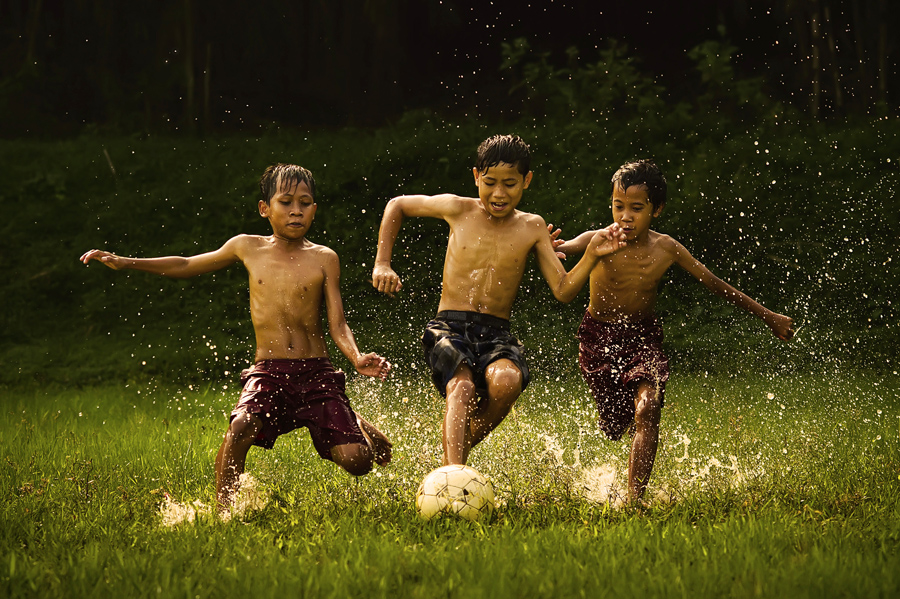
12 Jul 5 Ways to Prevent Summer Learning Loss for Kids
Summer, yea!
Kids race out the door when that final bell rings. They climb onto the bus and sing songs about “no more homework, no more books” or teachers and their dirty looks. However, if the kids are allowed to vedge and remain in a state of idleness all Summer, they will return having lost a great deal of the progress they just worked to achieve.
Certainly they will loudly bellow in protest about how this is the time for play and not more learning. This doesn’t have to imply that kids need to continue working papers of sitting at desks. The Summer is loaded with opportunities to keep kids’ brains active. If they find some activities that are particularly well-matched to them and they dig in deep, they may actually return to school in the Fall at a higher level and eager to learn more.
Your Local Library
Your local library is your first ally in Summer. They offer many special activities and Summer reading programs. Some hand out charts and recommended reading lists. When kids complete a book or a certain amount of time reading, they can color in the chart. Once a chart is complete, kids can pick out a small prize!
One of the best ways to sell kids on the idea of reading in the Summer is that they can self-direct as to what they read. Have them make a list of topics that interest them, then work with them to find books on those topics. If they have their mind set on playing in the dirt, ponds and woods, maybe you look up books on local wildlife, camping, fishing or even bb-gun safety. If your kid is more of the indoor type, maybe they want to try an appropriately leveled computer programming course or they can get some interior design or decorating ideas for their bedroom makeover.
Creative Writing
The library is without a doubt well-stocked with fiction literature from J.K. Rowling and J.R.R. Tolkien, to short stories and picture book collections like Chris Van Allsburg and Dr. Seuss. These books will likely spark your child’s imagination. You don’t have to let it stop when they close the book. They can be coached to try to imitate what they just read.
Have them write an additional chapter to a story, or create a new character to fit into the story they just read. Once they realize that they can also create stories, you can have them build their own picture book. The early draft in the development of a children’s picture book is called a dummy. It is sort of a model and storyboard for the book. There are several Internet guides, like this 9-step guide, which teach you how to make the first stage of your very own picture book. Kids can engage their imagination, develop or cultivate a skill of writing and find a new appreciation for literature.
Specific Skills
It is usually frustrating to focus only on the areas where a child struggles. If they bring home five A’s and one C or D on their report card, which one are they going to hear about? Right, typically the one class that is a struggle for them is even harder to escape at home. That doesn’t have to be the end of the story, there are often other ways to unlock and improve their capability in these more-challenging areas.
Math Games
– If math is difficult for your student, there are many games available that can gently keep them using those arithmetic-oriented brain cells. If you have Yahtzee or Monopoly in your closet, those help with simple addition and subtraction. They can also help your child learn how to make change, if their first Summer job is on the horizon. Then online CoolMath-Games.com is one of many options, just Google for more.
The movie October Sky is great example of how a side interest in rocketry, helped kids to deeply learn the math and science necessary to compete not just locally, but on a national level.
Reading
– We mentioned some ideas involving reading earlier, but what if the obstacle is reading aloud? Some kids can read fine in their heads, but lack confidence when reading using their voice. They could act out plays or scenes of movies. This pair of kids in the 1980s actually recreated the entire movie Raiders of the Lost Ark. They worked for years, going scene by scene. This would have provided an enormous amount of practice at analyzing production, scene construction, dialogue, performance. If your students were to delve this deeply into a labor of love, they would be improving those basic skills and not even realize it.
Travel
– Many families travel during Summer vacation. You can exploring the world near home and far away, wherever you happen to find yourself. Research what is available in those towns, or in places you pass through. You may find that you’re a few miles from a museum filled with things that interest you. It can be an art museum, that is the most common kind, but there are many other options like history and other fun topics.
Many resources
You don’t have to stop there. Hopefully this article and other guides like these:
- 25 Activities to Keep Kids’ Brains Active in Summer
- Seven Ways to Prevent Summer Learning Loss by Barbara Dianis
…can be an inspiration for fun ways to keep your students from forgetting what they learned. If you hit the right note with each kid, they may even return as stronger students!
Photo Credit to alex hanoko / CC 2.0




No Comments